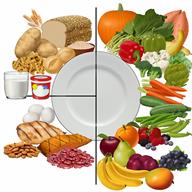Too Much Body Fat in Adults (Obesity): What to Know
Being overweight is having too much body fat. Obesity is having so much body fat that it can affect your health and lead to other health problems.
BMI (body mass index) is a number that explains how much body fat you have. It's calculated from your height and weight. If you have a BMI of 25 or more, you're overweight. If you have a BMI of 30 or more, you're obese.
Obesity can cause serious health problems, such as:
Stroke.
Heart disease.
Type 2 diabetes.
Some types of cancer.
High blood pressure.
High cholesterol.
Obesity can also contribute to:
What are the causes?
-
Eating more food (calories) every day than your body needs.
-
Sugary drinks.
-
Being born with genes that may make you more likely to become obese.
- Medical conditions that cause obesity. These include:
Hypothyroidism.
Binge-eating disorder.
Cushing syndrome.
-
Certain medicines, such as steroids or birth control medicines.
-
Sitting a lot (sedentary lifestyle), including a lot of screen time.
-
Not getting enough sleep.
What increases the risk?
-
Having a family history of obesity.
-
Living in an area with little access to parks, recreation centers, or sidewalks.
-
Living in an area with little access to healthy foods, such as grocery stores and farmers' markets.
What are the signs or symptoms?
The main sign of obesity is having too much body fat.
How is this diagnosed?
Obesity is diagnosed based on:
Your BMI. An adult with a BMI of 30 or higher is obese.
The measurement around your waist.
Your skinfold thickness. Your health care provider may gently pinch a fold of your skin and measure it.
You may have other tests to check for other causes of obesity.
How is this treated?
Treatment for this condition often includes changing your lifestyle. Treatment may include:
Changing your diet. You may need to follow a healthy meal plan.
Exercise. This may include activity that causes your heart to beat faster (aerobic exercise) and strength training. Work with your health care team to create a program that works for you.
Medicine to help you lose weight. This may be used if you aren't able to lose one pound a week after 6 weeks of healthy eating and more exercise.
Treating conditions that cause obesity.
- Surgery. This includes a gastric sleeve and gastric bypass. Surgery may be done if:
Other treatments have not helped.
You have a BMI of 40 or higher.
You have serious health problems that are caused by obesity.
Follow these instructions at home:
Eating and drinking

- Follow advice from your health care team about what to eat and drink. You may be told to:
Limit fast food, sweets, and processed snacks.
Choose low-fat foods, such as low-fat milk instead of whole milk.
Eat five or more servings of fruits or vegetables every day.
Eat at home more often. Choose healthy foods when you eat out.
Keep low-fat snacks available.
Limit sugary drinks, such as soda, fruit juice, sweetened iced tea, and flavored milk.
-
Drink more fluids as told.
-
Do not go on a fad diet. These can be unhealthy and even dangerous.
-
Learn to read food labels. This will help you learn what a healthy serving is.
Physical activity
- Exercise as told.
-
Warm up and stretch before an activity.
-
Cool down and stretch after an activity.
-
Rest between periods of activity.
Lifestyle
-
Work with your health care team to set a weight-loss goal that's best for you.
-
Limit your screen time.
-
Find ways to reward yourself that don't involve food.
-
Do not drink alcohol if your provider tells you not to.
- If you drink alcohol:
- Limit how much you have to:
Know how much alcohol is in your drink. In the U.S., one drink is one 12 oz bottle of beer (355 mL), one 5 oz glass of wine (148 mL), or one 1½ oz glass of hard liquor (44 mL).
General instructions
-
Keep a weight-loss journal. Use it to keep track of the food you eat and how much exercise you get.
-
Take medicines as told.
-
Take vitamins and supplements as told.
-
Think about joining a support group.
-
Pay attention to your mental health. Obesity can lead to depression or poor self-esteem.
Contact a health care provider if:
-
You have trouble with your mood, how you act in certain situations, or how you interact with others.
-
You have trouble sleeping.
-
You have joint pain.
-
Your breathing requires more effort than normal.
-
You've made recommended changes but you're not losing weight.
-
You avoid eating with family or friends.
This information is not intended to replace advice given to you by your health care provider. Make sure you discuss any questions you have with your health care provider.
